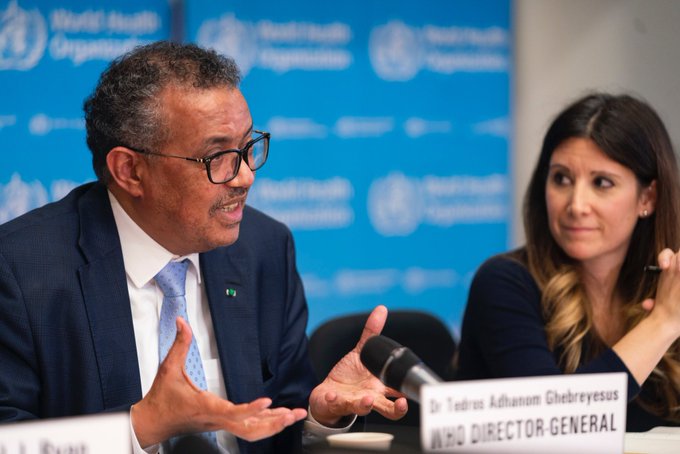UN agencies issue urgent call to fund the global emergency supply system to fight COVID-19

The heads of the United Nations’ major agencies have issued a warning of the risk of COVID-19 to the world’s most vulnerable countries. International donors have pledged around a quarter of the US$2 billion the UN requested in the Global Humanitarian Response Plan for COVID-19 in March.
Calling upon the donor community to generously contribute they noted that “Humanity is collectively facing its most daunting challenge since the Second World War. COVID-19 knows no borders, spares no country or continent, and strikes indiscriminately. By all accounts, we are at least 12 months away from a vaccine.”
“In this race against an invisible enemy, all countries must fight back, but not all begin from the same starting line. In countries where the world’s most vulnerable need humanitarian aid and supplies to beat back the pandemic, cancelled flights and disrupted supply routes hit disproportionately hard. It is in everyone’s interest to stop the virus from spreading unchecked, destroying lives and economies, and continuing to circle around the world,” they wrote in an open letter.
The UN Secretary-General on 25 March launched the COVID-19 Global Humanitarian Response Plan, requesting US$2 billion to boost the global response. Till date around $550 million has been raised to implement the Plan so far, with significant additional resources being mobilized and pledged.
The Central Emergency Response Fund (CERF) has also released $95 million to kick-start the COVID-19 response, help contain the spread of the virus, maintain supply chains, and provide assistance and protection to the most vulnerable people, including women and girls, refugees and internally displaced persons.
However, much more needs to be done. The UN World Food Programme (WFP) is setting up the vital logistics backbone that is expected to help save lives and help halt the spread of the virus. WFP now urgently needs additional funding to establish the necessary transport hubs, charter vessels and provide aircraft for cargo, health workers and other essential staff.
Urging for immediate aid, the heads of UN organisations has called upon the internatinal community and donors to immediately make available $350 million to enable a rapid scale-up of logistics common services.
The scale-up of the COVID-19 services includes establishing, equipping and managing international consolidation hubs and regional staging areas; air and shipping cargo services; passenger air services, with the necessary measures to avoid further spreading of the virus; medical evacuation services for front-line workers; infrastructure and construction of treatment centres; real-time remote data collection; critical investments required to safely deliver operations and services.
The signatories of the open letter were Mark Lowcock, Emergency Relief Coordinator and Under-Secretary-General for Humanitarian Affairs, Office for the Coordination of Humanitarian Affairs, Filippo Grandi, United Nations High Commissioner for Refugees, United Nations Refugee Agency; Henrietta H. Fore, Executive Director, United Nations Children’s Fund, David Beasley, Executive Director, United Nations World Food Programme, Achim Steiner, Administrator, United Nations Development Programme, Tedros Adhanom Ghebreyesus, Director-General, United Nations World Health Organization, Qu Dongyu, Director-General, United Nations Food and Agriculture Organization, António Vitorino, Director-General, United Nations International Organization for Migration, Natalia Kanem, Executive Director, United Nations Population Fund, Michelle Bachelet, High Commissioner, United Nations Office of the High Commissioner for Human Rights, Gareth Price-Jones, Executive Secretary, Steering Committee for Humanitarian Response, Ignacio Packer, Executive Director, International Council of Voluntary Agencies, Sam Worthington, President and CEO, InterAction, Cecilia Jimenez-Damary, Special Rapporteur on the human rights of internally displaced persons, United Nations Office of the High Commissioner for Human Rights, Jagan Chapagain, Secretary General, International Federation of Red Cross and Red Crescent Societies.